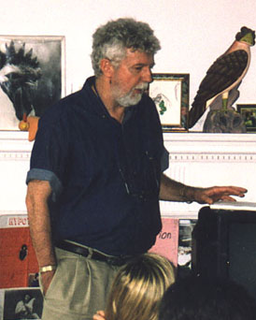A Quote by Ernest Hemingway
Personal columnists are jackals and no jackal has been known to live on grass once he had learned about meat - no matter who killed the meat for him.
Related Quotes
I'm a vegetarian. You're a what? I don't eat meat. How can you not eat meat? I just don't. He says he does not eat meat. What? No meat? No meat. Steak? No... Chickens! No... And what about the sausage? No, no sausage, no meat! He says he does not eat any meat. Not even sausage? I know! What is wrong with him? What is wrong with you? Nothing, I just don't eat meat!
Animals raised on corn produce fattier meat, but it's not just that it's fattier, it's the kinds of fats. Corn-fed beef produces lots of saturated fats. So that the heart disease we associate with eating meat is really a problem with corn-fed meat. If you eat grass-fed beef, it has much more of the nutritional profile of the wild meat.
The value of the myth is that it takes all the things we know and restores to them the rich significance which has been hidden by ‘the veil of familiarity.’ The child enjoys his cold meat, otherwise dull to him, by pretending it is buffalo, just killed with his own bow and arrow. And the child is wise. The real meat comes back to him more savory for having been dipped in a story…by putting bread, gold, horse, apple, or the very roads into a myth, we do not retreat from reality: we rediscover it.
To avoid causing terror to living beings, let the disciple refrain from eating meat... the food of the wise is that which is consumed by the sadhus [holymen]; it does not consist of meat... There may be some foolish people in the future who will say that I permitted meat-eating and that I partook of meat myself, but... meat-eating I have not permitted to anyone, I do not permit, I will not permit meat-eating in any form, in any manner and in any place; it is unconditionally prohibited for all.






































